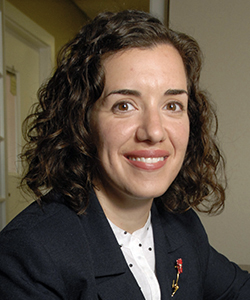Become a Patreon!
Abstract
Excerpted From: Christine E. Cerniglia, Systemic Injustice: The Need for Disaster and Pandemic Preparedness Legislation, 99 University of Detroit Mercy Law Review 53 (Fall, 2021) (277 Footnotes) (Full Document)
 Each disaster is unique in impact, and while it is impossible to prepare for every disaster, there is a similar cycle that appears after every disaster which demonstrates structural inequities, disparate impact upon communities of color, greater suffering for those with high risk factors, long-term mental health effects and trauma upon children. The COVID-19 pandemic is a moment of reckoning with this cycle and a moment to realize the many failures and to learn from past lessons in the disaster context. Overall, this article advocates for urgent change, specifically, to ensure all stakeholders are present in decision-rooms, to create a common vocabulary, and measurement tools in order to analyze data related to “preparedness,” “vulnerability,” and “resilience” and to create legislation which allocates resources to fund preparedness for public health needs and vulnerabilities in communities hardest hit. The loss of life is too great and the call for systemic change and accountability can no longer be ignored.
Each disaster is unique in impact, and while it is impossible to prepare for every disaster, there is a similar cycle that appears after every disaster which demonstrates structural inequities, disparate impact upon communities of color, greater suffering for those with high risk factors, long-term mental health effects and trauma upon children. The COVID-19 pandemic is a moment of reckoning with this cycle and a moment to realize the many failures and to learn from past lessons in the disaster context. Overall, this article advocates for urgent change, specifically, to ensure all stakeholders are present in decision-rooms, to create a common vocabulary, and measurement tools in order to analyze data related to “preparedness,” “vulnerability,” and “resilience” and to create legislation which allocates resources to fund preparedness for public health needs and vulnerabilities in communities hardest hit. The loss of life is too great and the call for systemic change and accountability can no longer be ignored.
Literature after disasters demonstrates the disproportionate impact upon vulnerable populations that suffer at a greater rate due to structural Those same structural issues have also created greater suffering for communities during this pandemic. The article views disaster preparedness, response, and mitigation of risk factors as necessary to advocate for change and funding to reduce vulnerabilities.
The article explores two frameworks provided at international conferences, specifically the 2005 World Conference on Disaster Reduction and the 2015 UN World Conference on Disaster Risk Reduction, providing suggested disaster frameworks to reduce risks. These frameworks promulgated certain actions wherein countries can develop stronger responses to disaster through policy and legislative action. Unfortunately, it is clear such preparation and response were not implemented and thus greater suffering resulted from the COVID-19 pandemic.
Leaders are to follow disaster response frameworks or to act according to preset disaster response plans. Legislation is necessary to provide proper funding to prepare for future crises. First, federal or state legislation to require uniform vocabulary and assessment tools are necessary to collect data and to analyze vulnerabilities, preparedness, and resilience in certain communities. The need for consistent definitions and measurable outcomes is a consistent call for change which can no longer be delayed.
This article highlights many recommendations and key findings in the most recent FEMA report addressing the COVID-19 response as well as literature after disasters. Each opportunity for policy change is essentially a call to action for legislative change to engage lawyers, law schools, and policymakers. The article explores specific opportunities to engage future generations of lawyers in policy work and proactive disaster or pandemic legislation to help address the many systemic issues. The author ultimately hopes to inspire an urgent response for statutory change and accountability.
[. . .]
Overall, there is plenty of work and laws play a critical role in preparedness to address many of the systemic issues. To raise awareness with a keen eye toward disaster resilience more advocacy is necessary at all levels and anyone may engage in preparedness work to train future generations to understand risk factors and think creatively about solutions. Some law schools have engaged in legislative or policy work in the clinic space and serve a critical role to create change and train the next generation of legislative advocates. To create change through legislation first requires transparency, shared data, study and then gathering to brainstorm solutions with all stakeholders present. To address systemic vulnerabilities requires creative processes to build resilience for all within a community.
Christine E. Cerniglia is an Associate Professor of Law, Director of Clinical and Experiential Education at Stetson University College of Law.
Become a Patreon!


